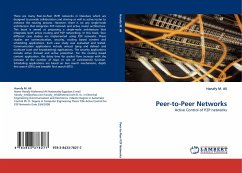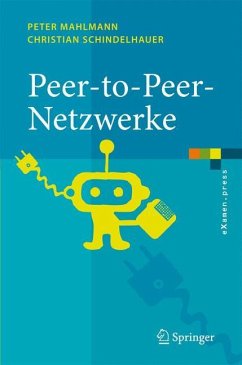
Embedded Peer-To-Peer Networking
Evaluation of Peer-To-Peer Protocols for an Embedded System
Versandkostenfrei!
Versandfertig in 6-10 Tagen
32,99 €
inkl. MwSt.

PAYBACK Punkte
16 °P sammeln!
Today decentralised communication of embedded computer systems is an important area of research. In this book peer-to-peer protocols are evaluated in respect to usability on low-performance embedded energy management nodes. As peer-to-peer technology is usually developed for home computers, which offer a far greater hardware performance as any embedded system, these protocols are in general poorly adapted to the limits of embedded hardware. So the main challenge in this endeavour is to find a protocol that is able to cope with the severely limited hardware resources of these embedded energy ma...
Today decentralised communication of embedded computer systems is an important area of research. In this book peer-to-peer protocols are evaluated in respect to usability on low-performance embedded energy management nodes. As peer-to-peer technology is usually developed for home computers, which offer a far greater hardware performance as any embedded system, these protocols are in general poorly adapted to the limits of embedded hardware. So the main challenge in this endeavour is to find a protocol that is able to cope with the severely limited hardware resources of these embedded energy management nodes. This protocol is then implemented as a proof of concept, in order to establish that peer-to-peer technology is applicable even on low-performance embedded systems. The developed software is tested on the existing embedded node and the behaviour in larger networks of up to thousand nodes analysed in simulations. By these procedures the suitability of the protocol for coordination between these embedded systems is ascertained but not without highlighting existing limits.












